How Can I Pay for that New Drill Rig?
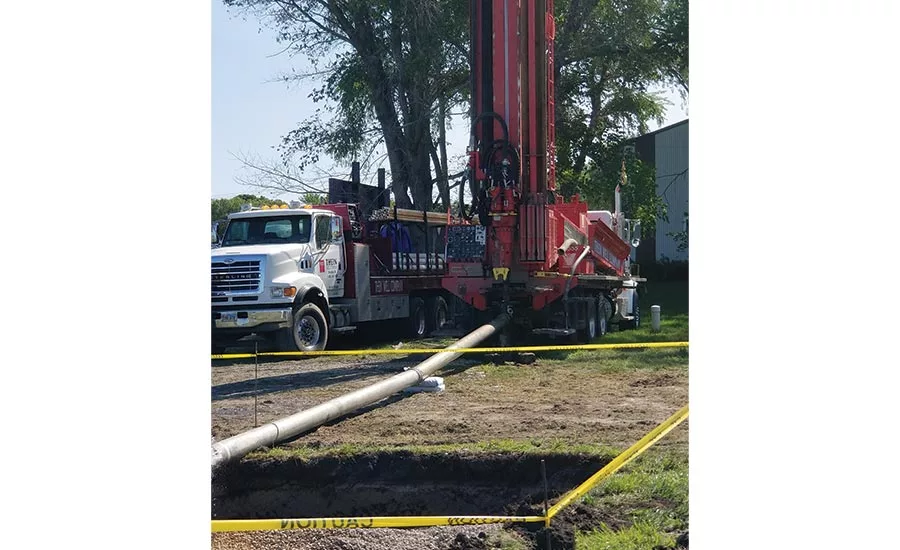
Contractors may be in trouble if they charge $17 per hour to install a water well, but their $1 million drill rig costs about $25 per hour to operate.
Source: Brian Pinkelman / Thein Well Company
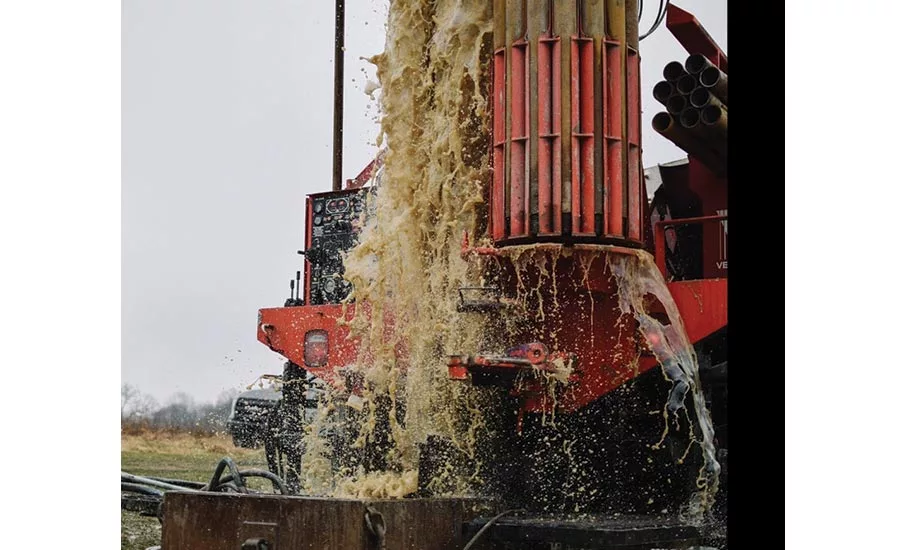
Heavy equipment to install wells is expensive, but homeowners don’t consider their well as much as, for example, cabinets.
Source: Brock Yordy
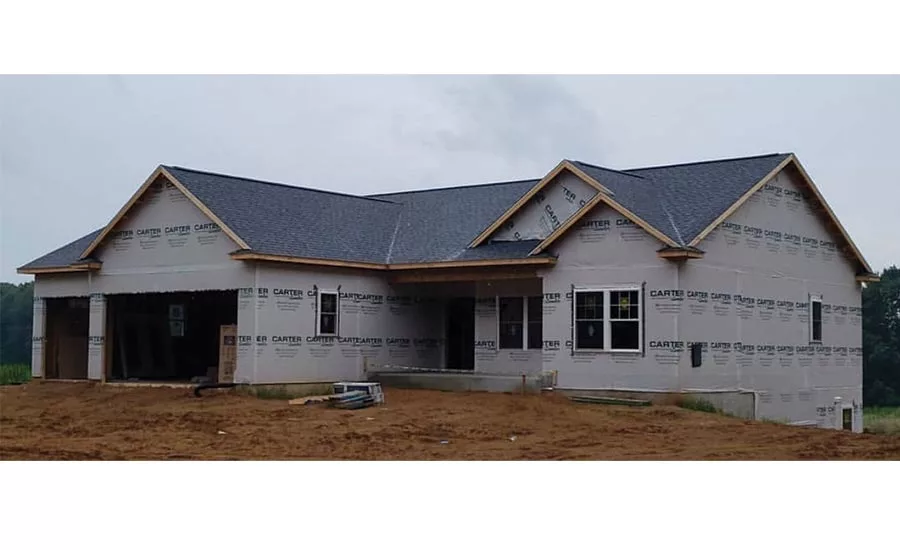
When considering drillers for residential work like this home, Cameron Fox at Fox Custom Builders says he doesn’t mind paying a premium for work with fewer headaches.
Source: Fox Custom Builders
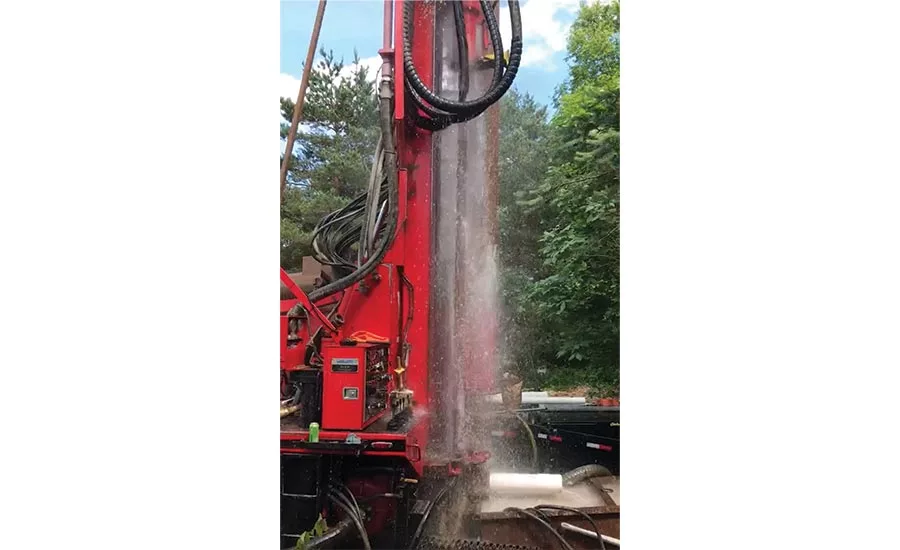
For custom residential work, homeowners just want good water pressure. They don't think of all the expensive equipment it takes to get it.
Source: Brock Yordy photos
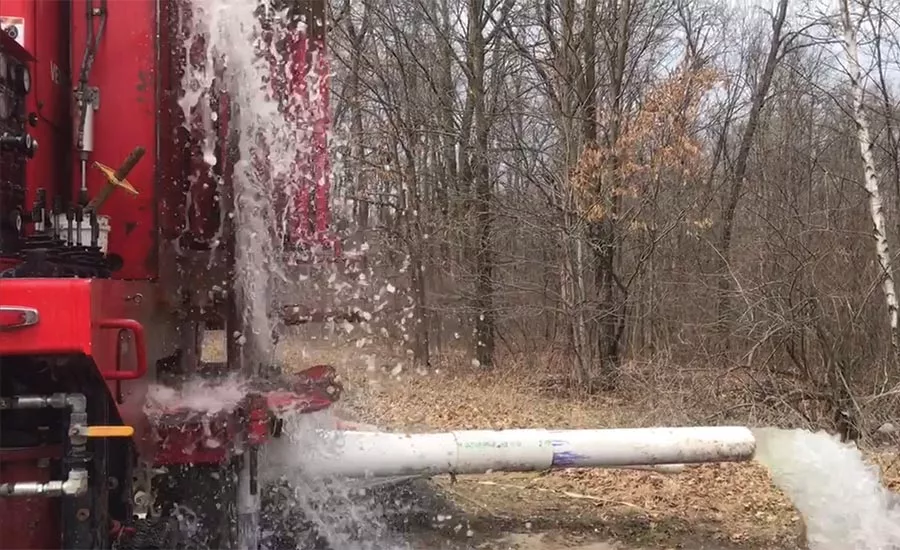
If contractors want to keep making wells that make water, they have to consider the per-hour cost to own their rig, in addition to interest, maintenance, repairs, tires, mud pumps and consumables.
What does it take to maintain a successful business? If you said profit, you hit the critical component to any good business. However, if you said the right equipment and team, your thought process drills deeper. I bet the rest of you were shouting, “Customers is what it takes!”
Maintaining a successful business was a top discussion point at the recent Mountain States, Maryland-Delaware, and Virginia groundwater conferences I attended as a presenter. To get a well-rounded perspective on this important topic, I interviewed a driller within our community and a custom home-builder connected to our community.
First up, Charles “Buddy” Sebastian of Sebastian and Sons Well Drilling based in Michigan is a long-time industry friend and president of the Michigan Ground Water Association. Sebastian has presented talks on job costs, company sustainability and the future of drilling companies at the MGWA’s annual conference. He also just presented at the Montana Water Well Drillers Association Convention & Trade Show.
Given his expertise, I spoke with Sebastian about the balancing act of running a modern small drilling company.
Q. Buddy, how do we make a drilling business sustainable enough to buy equipment and maintain employees?
A. The first talk I did on knowing your cost at MGWA, I had a question from the audience that said: “You have your business figured out. What's your exit plan?” I said, the day you start your business is the day you start planning to sell your business. What I mean is, to be able to sell your business you have to be able to set your market. You can either be the market setter or market followers. You have to be able to set the market that your business is solvent. To be solvent, you have to have enough money in your profit margin to maintain, repair and replace equipment. Then, beyond sustaining the business, you can’t just work for beer and pizza. So you have to have enough profit in there to pay the team and yourself.
Q. So how do we maintain and pay our people and ourselves?
A. Well, we have to set the going rate for drilling in our area to have enough profit dollars to complete the job, maintain the equipment, pay the team and invest in the future.
Q. Investing in the future means investing in new equipment, right?
A. We are in some dangerous times for new equipment in our industry. Rig manufacturers are for sale for the second time in less than a decade, and the latest trend is to build smaller, less expensive rigs.
Q. So, how do we buy the rig we require?
A. First of all, we have to stop pricing our product according to our competitor. We fix that by knowing our cost per hour and cost per day for equipment and project. That thinking that my competitor is drilling for $18, so I need to drill for $17 needs to go away. We need to know our costs on the first job and be profitable because it isn’t going to get any better if you don’t.
Q. What is your advice about buying a rig? New or used?
A. It is based on how many wells you do a year. I figure today’s drilling equipment’s life as 10 to 15 years, and yes, some older conventional rigs had a longer lifecycle. You know I did a cost analysis of some of my older table-drive rigs to replace belts, bearings, bushing and drivelines. What I saw was [that having] bushing and bearing that were relatively cheap to repair was no longer the case. Replacement parts were not built as good as the originals; importing cost had increased and, overall, these parts were becoming obsolete due to American manufacturers no longer making them. Conventional rigs are not as easy or cheap to repair as they were. You have to take into consideration downtime versus complete replacement.
Q. What about buying a new rig?
A. OK, how about an $800,000 new rig that is going to be maintained to last 15 years. I use 2,080 working hours in a year, and I take into consideration 15 years of life. That comes out to $25 an hour to operate that rig.
$800,000 / (15 years x 2,080 hours in a year) = $25.64
That’s the per-hour cost to own that rig. That’s not interest, maintenance, repairs, tires, mud pumps or wearables. It’s just the cost to own the rig. Next, you have to take into account everything to operate and maintain the rig, including the labor to repair, update and replace. A good number to start with for a new $800,000.00 rig is about $75,000 a year to own and maintain it. The best advice I can give to a new rig owner is to save $25 an hour for every hour of rig operation to replace that rig.
Q. How do we do that and make a big rig payment each month?
A. The rig payment comes from profit. If you can’t pay the rig out of profit, you are in big trouble. We must make a business that is sustainable that can attract and hire good people and, on top of that, pay ourselves. We must know our costs.
Q. How does the industry value water at a cost that makes the drilling business sustainable? How do we change the stigma that a water well must cost X but even interior amenities such as cupboards can cost so much more?
A. First, we, as an industry, must start teaching the end-user the same statement. Water is a necessity for life. We, as an industry, have more invested in equipment overhead than any other construction trade. I have quickly over a million and a half dollars invested in providing water; often the homes we drill wells for do not have that in the building materials and builder labor. We need to sell that point to our customers that we are invested in them, and they need to invest in us to be sustainable to continue to provide water.
Next, I turned to Cameron Fox, owner of Fox Custom Builders in Kalamazoo, Michigan. Fox has built custom homes in West Michigan, all requiring private water wells. He helped me visualize how customers and homebuilders view new water wells.
Q. How does your customer value or view their new water well?
A. Homeowners view their water wells as a non-negotiable necessity. Our customer usually addresses this part of the contract to the extent of “how will you make sure I get exceptional water pressure.”
Q. Is price a concern for your customers on a new well?
A. Pricing is consistent throughout our area, so pricing is not outrageous. The drilling companies’ professionalism and expertise exclusively drive my priority when choosing an installer.
Q. When building a home requiring a well what do you, as the builder, consider?
A. It is all about location. Location of the well may seem like a no brainer, but choosing a site, particularly on nonconforming lots or lake homes, can be somewhat problematic. Distance from property lines, septic systems and sewage ejection pumps can often become a balancing act. A drilling company willing to work with the footprint I have is invaluable.
Q. What is your perception of working with water well drillers vs. other skilled trades?
A. Similar to any skilled trade, you can pay a premium for a professional company to complete premium work, or you can find an inexpensive alternative and deal with the consequential headaches. You get what you pay for.
Q. Tell me about experiences with two different local drilling companies.
A. I have had very positive experiences with the two drilling companies I use. Both are excellent, and overall I had similar experiences. The estimates and proposals aligned, and they both researched well logs on adjacent properties to present reasonable estimated well depths. One thing that makes me use one company over the other is when they go the extra mile to educate my customers on the process and me. I have a backup drilling company just because of schedules.
Q. What is the item a homeowner willing to spend the most on?
A. Every homeowner has a different pricing tolerance based on what is important to them. When building a vacation home, the money will be spent to upgrade materials requiring less maintenance. Homeowners with large families are more focused on added square footage than premium kitchen cabinets or heated floors. Ultimately, each homeowner is unique, and their money is allocated toward their “must-have” items.
Q. What is the most expensive component of a new home build?
A. With the significant increase in the cost of wood over the last 10 years paired with the massive jump in labor costs, framing the home is typically the most expensive component of new construction. Other added costs come from the special footing or extensive land improvements/excavation.
Q. Talk about the custom home-building process and the value you put on it to the homeowner.
A. We build custom homes that meet each client’s specific wants and needs. Not only do we accomplish this but at the same time we build quality homes. Energy-efficient and structurally sound homes are the starting point for our homeowners. These are our core values and a starting point from where we build to create a functional and architecturally pleasing home that exceeds our homeowners’ expectations. Building a home is like entering into a serious relationship with someone you just met. You are going to spend hundreds of hours with them, answer multiple calls a day and then respond to their weekend emails. You have to get along, or you’ll both walk away from the process drained and upset. I have found the best way to get along is to require perfection from my employees and my subs. That’s it. I do not allow mediocrity; my customers know it, and it establishes a basis for trust.
Q. What is your upfront investment to build a custom home, and what do you require to sustain your business?
A. The entry barrier has working capital to pay subcontractors and material suppliers between bank draw. I typically need 20-25% of the contract price in liquid assets to fund the project. Then it’s about managing my project and understanding the profit I need to sustain my business, pay my employees and, at the end of the day, I need to provide for my family.
We need customers and builders, and they 100% require the drilling industry to provide water. We have to establish our message of value to our customers. The problem cannot be solved with one company or region that cannot solve our image; it will take the entire community discussing how we make the change together. In the end, we need the same thing our builder requires, to be able to recruit and pay good men and women to progress our industry, buy the right technology to be successful, and provide the consumer with a quality product that they value.
Looking for a reprint of this article?
From high-res PDFs to custom plaques, order your copy today!








